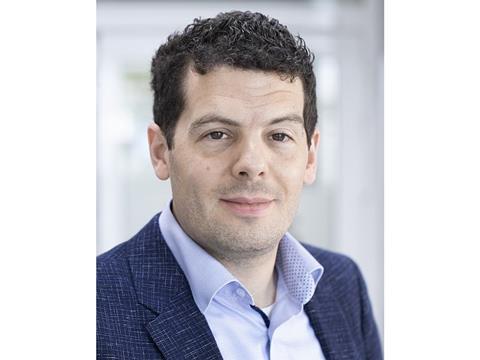
What is next for digitization and Industry 4.0? Five questions for Dr.-Ing. Matthias Schopp, head of Engineering Systems at KHS in Bad Kreuznach in Germany.
What’s your position on digitization as one of the people responsible for research and development at KHS?
In its implementation digitization is more of an evolution than a revolution. Much of this has been going on for years: new functions in individual assemblies are successively changing lines and machines; components are becoming more intelligent and expanding the possibilities of superordinate control systems; networking is creating added value, such as in process monitoring or machine diagnosis. We’re integrating these and many other aspects to form a turnkey system. In doing so we ask ourselves two questions: what’s the relevant added value for our customers? And what’s the relevant business model for us?
In which direction do you think Industry 4.0 will develop?
Industry 4.0 will create greater transparency in processes and in doing so make the operation of a line much more efficient. We can already see some of ist manifestations: the evaluation of sensor data collected along a line, for example, allows local and superordinate functions to be improved. Other characteristics will ensue – such as for self-optimizing lines.
How will this work in practice?
In the DnSPro research project we measure the foaming on filling machines with the help of cameras. The idea behind this is that in the future the machine can optimize itself to suit a new product as the automated variation of the filling parameters replaces the manual adjustment process. Applications like these won’t be available in the near future, however.
Don't developments like these make machine operators redundant?
No. Our aim must be to make human operation of the increasingly complex technology demanded by the market easier. With the help of artificial intelligence we want to make self-learning and self-optimizing systems feasible which with their great flexibility can be managed by humans and thus enable highly efficient, cost-effective operation. This isn’t just our vision but that of the entire industry, also of our partners.
How must KHS develop to be successful on the market of the future?
As part of the mission statement process managed by our parent company Salzgitter we’ve made customer orientation the value of the year. We’ve received constructive feedback from many of our customers all over the world. On this basis we at KHS will focus on effecting even better cooperation across our divisions and departments in the future. In doing so we’ll make a further move towards the customer – and not just from a sales point of view. After all, every single action counts within a company – regardless of in which department.













